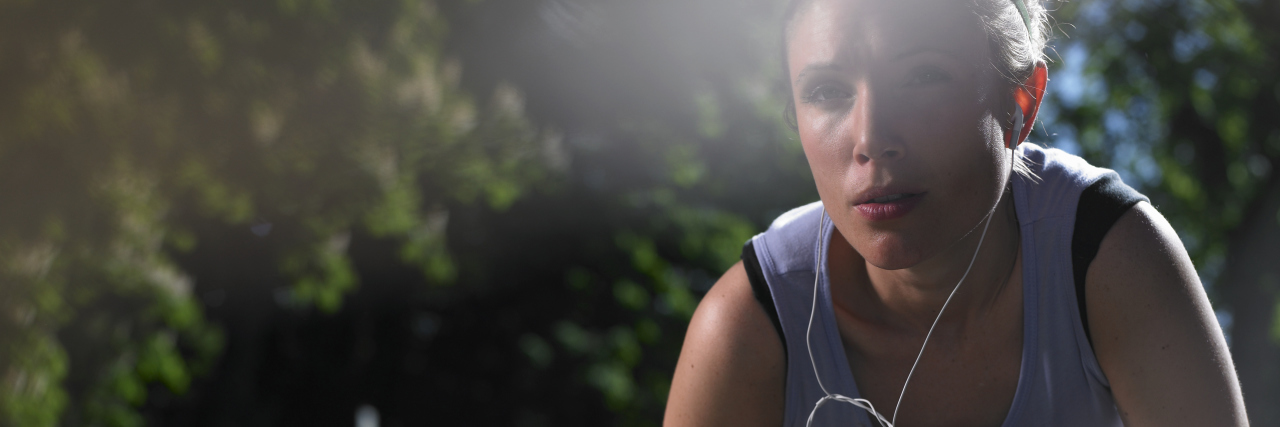I have run 20 half marathons and done one half-Olympic triathlon in my life. I have been a certified personal trainer, and I have trained friends just for the fun of it. A few years ago, I noticed my runs were becoming much harder and I couldn’t lift as much or as often. I chalked it up to age.
Then I was diagnosed with Hashimoto’s 15 months ago. All my exercise had already stopped because of the fatigue and recovery time. But I keep hoping I’ll be able to work out again.
So this weekend, we did a team building exercise at work. And I mean literally, exercise. We played basketball for an hour. It was so fun! The other team won a game and my team won a game (I think they were going easy on us).
But later that day, and the next day, and even the day after that, my body kind of felt like it was moving in disjointed pieces. I hurt in places I didn’t even know I had.
This is what exercise feels like with Hashimoto’s. All the time, every time I try to do something beyond yoga and hiking. Three weeks ago, I tried to go for a run and I did two miles in nearly 30 minutes, which is how fast a speed-walker walks. I regretted that workout for three days. I was exhausted, my brain didn’t work and my body hurt as though I was injured. It wasn’t a sore-from-lactic-acid kind of hurt. It was what-on-earth-was-I-thinking hurt.
I’ve been told that Hashimoto’s patients have to be careful with exercise in general, but I know of a few who can still run. They say it has changed their run in that it takes longer to recover and they can’t go as far or as fast, but they can run.
Maybe I’ll get it back someday. Maybe I’ll heal enough to do more than walk a mile. I know it’s not my fault but it’s tough to be so limited. To look at me, you’d never guess I have such limitations. But I can’t even play basketball for an hour without feeling what I’ve begun calling “Hashimoto’s Hangover,” which means I did something strenuous a day or two ago and I’ll be falling apart for a few days, both physically and mentally.
At first I thought this was just a minor little syndrome and I’d be fine once I was medicated. Then I thought with fierce determination that I would be a runner again and even went so far as to register for a few local races. After the first 5k (3.1 miles) I did, I slept for days, so I gave up. Then I went through what I think of as a mild depression, upon realizing that this isn’t a minor syndrome, but a chronic disease I have to change my life to deal with. It was almost an identity crisis. I sought counseling to help reframe my identity, not as a runner but also not as a “Hashi.” I am not my disease and I refuse to let that be my identity. But it sure was hard to come to terms with the idea that my hobbies aren’t deadlifts and 10-mile runs anymore, and will likely never be again. My stomach will not be flat. I will not be able to lift heavy objects. I will not have a “bubble butt.”
I genuinely miss working out. I am grateful for the things I can do, and I am grateful for the progress I have made. But still, I mourn the freedom that comes with a great run and how empowering a heavy lifting session can be.
For a long time, I resisted the urge to actually write this down, to acknowledge I am limited and to put that on paper. But since I keep trying, once or twice a month, to do something I know I shouldn’t do, in the hopes that “it’ll be different this time,” I thought maybe committing my thoughts to written word would strengthen my resolve to take care of myself in a different way. Instead of a hard workout to get stronger, I’m avoiding a hard workout to get stronger. And maybe one day I’ll be in remission and I can go hard again. But until that time, yoga and hiking are great for me. That’s just how it is for now.
We want to hear your story. Become a Mighty contributor here.
Photo via John Howard on Getty Images

